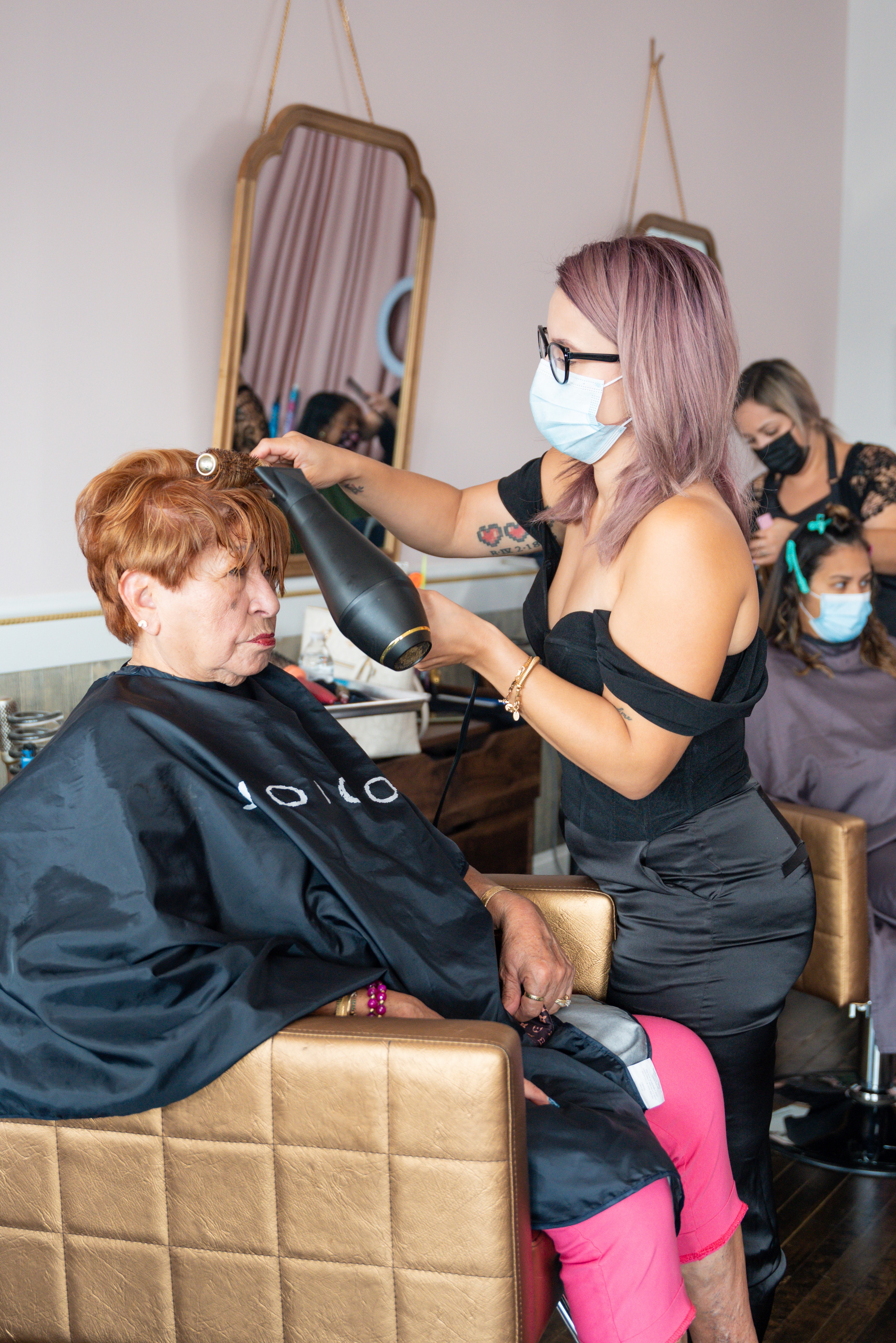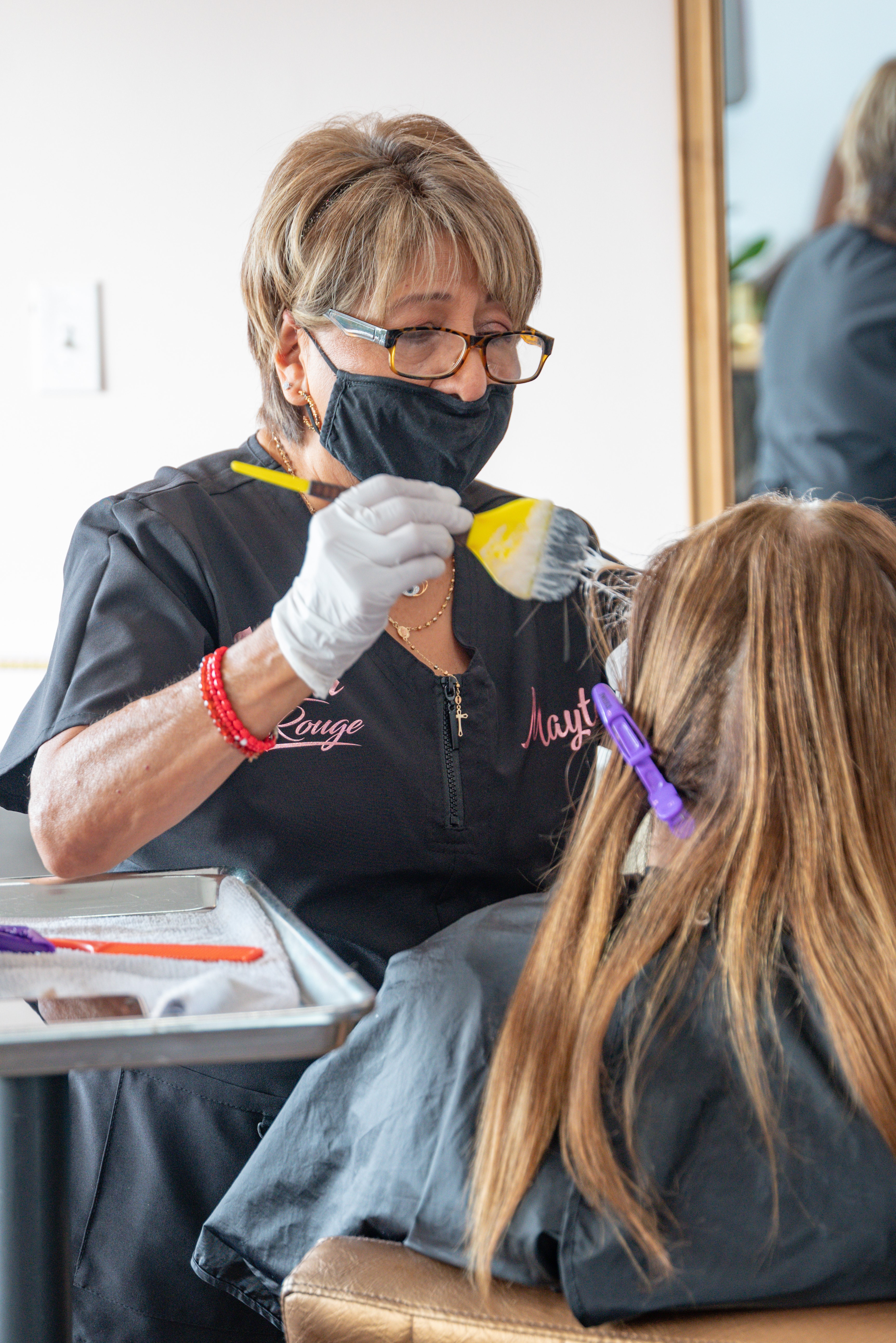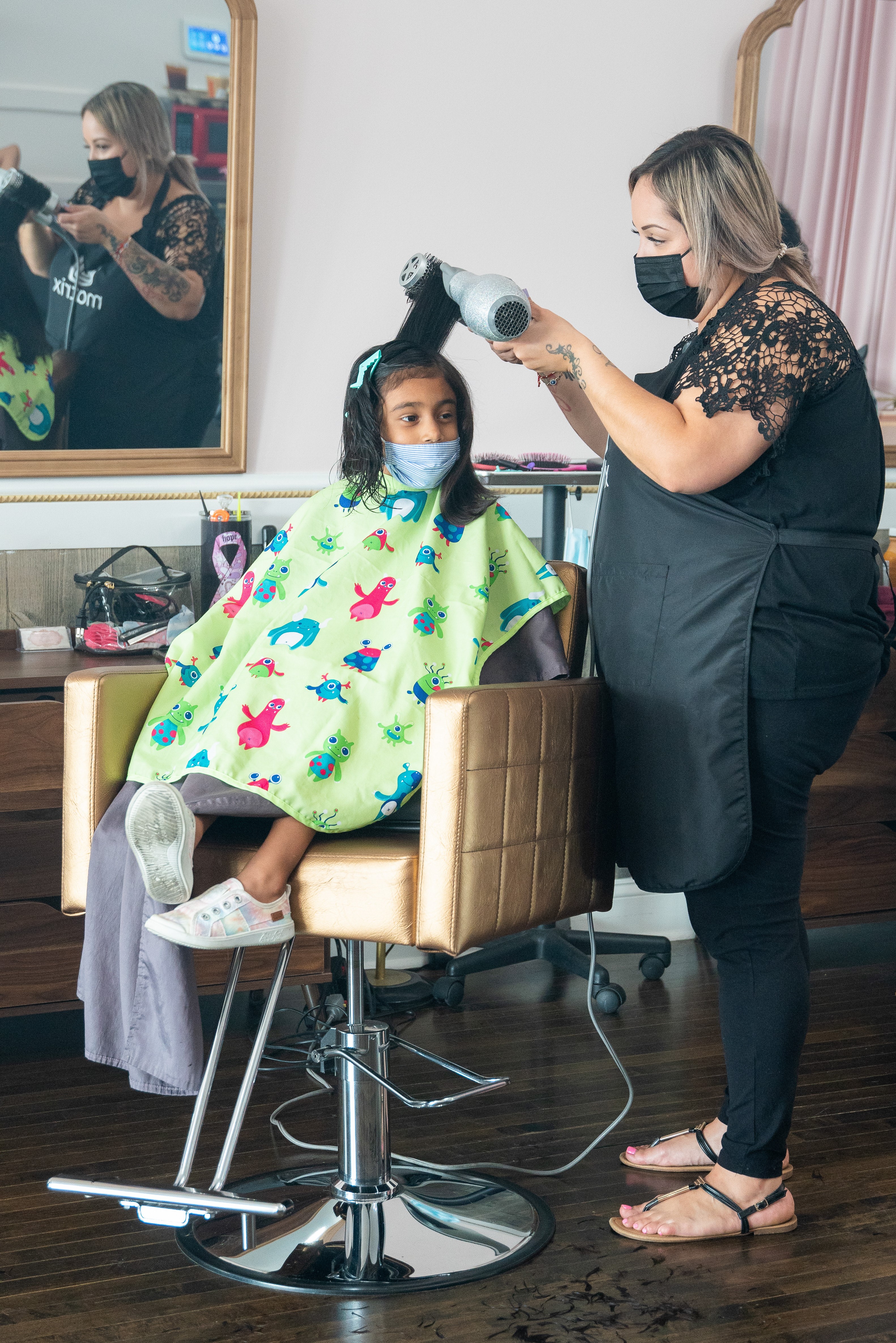For Diamaris (Lulu) Quiles, a Chicago entrepreneur, there have been challenges over the last 18 months, but there has also been an opportunity: the chance to purchase a commercial space for her Salon La Rouge in one of the city’s most prominent Latino neighborhoods, Belmont Cragin. It would not only move her from a renter to an owner, but it would also position her salon on a busy thoroughfare that would help increase her long-term business potential.
The pandemic has been devastating for many neighborhood businesses, with shutdowns, capacity limitations, and ongoing health fears chipping away at revenue. Nationwide, the pandemic is estimated to have shuttered 200,000 small enterprises, significantly affecting minority owners, immigrant communities, and other underserved areas with limited access to capital.
For Diamaris (Lulu) Quiles, a Chicago entrepreneur, there have been challenges over the last 18 months, but there has also been an opportunity: the chance to purchase a commercial space for her Salon La Rouge in one of the city’s most prominent Latino neighborhoods, Belmont Cragin. It would not only move her from a renter to an owner, but it would also position her salon on a busy thoroughfare that would help increase her long-term business potential.
She just needed flexible, affordable financing to be able to move forward.



“This is a key value of LISC for small businesses,” noted Alex Ruiz, small business lending officer at LISC Chicago, who worked with Quiles on a loan to support the property purchase. “We don’t judge businesses as too small, too new, or too thinly capitalized to fit within conventional lending rubrics, and we don’t look at a neighborhood and say it’s too risky because of local income levels. This is the market we serve. We see the opportunity in making financially sound investments in owners like Lulu all around the country.”
With the help of Northwest Center, a long-time local LISC partner in Chicago, Quiles had already developed a solid business plan, had access to ongoing technical assistance, and had acquired a small grant to help fund the down payment on the property. (In fact, she had collaborated with Northwest Center for years on building her business and buying a home).
LISC then stepped in with permanent financing, tapping COVID relief loan funds from State Farm as well as funding from JPMorgan Chase’s Entrepreneurs of Color program to help her purchase the property.
The building includes a storefront commercial space for the salon and an apartment in the rear to generate additional income. Now, as an owner, Quiles can avoid the risk of displacement that was always present when renting her commercial space while also acquiring a lasting asset that she could lease or sell in the future to meet her business needs.
“This kind of lending not only supports neighborhood enterprises, but it also supports neighborhood leaders,” stressed Meghan Harte, LISC Chicago executive director. “Lulu is on the local school council for a nearby elementary school. She has served on the advisory committee for the Belmont Cragin Avenues for Growth Plan. And she has been honored for her local efforts as a “Latinos 40 under 40” by Negocios Now, a prominent Latino business publication.
“Her family owns a home in the area. She hires staff from the community. And her business contributes to the safety and vibrancy of the streetscape—sitting across the street from a park, down the block from a daycare center, and a few doors from a corner ice cream shop, a florist, and restaurants,” she explained. “It’s hard to put a financial value on that level of social and economic engagement. She and her business are a true asset to the community.”